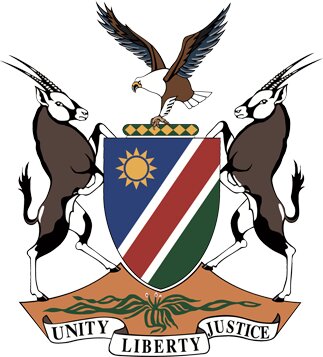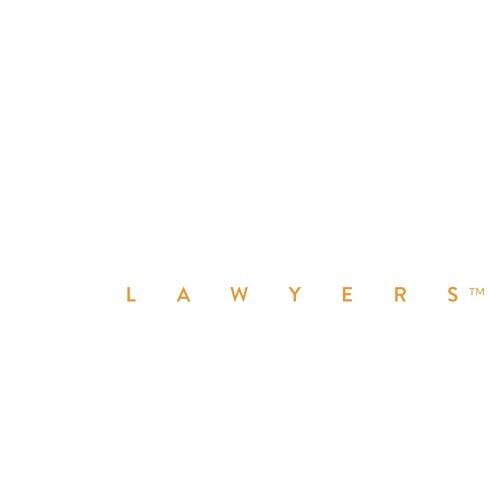Best State, Local, and Municipal Law Lawyers in Namibia
Share your needs with us, get contacted by law firms.
Free. Takes 2 min.
Or refine your search by selecting a city:
List of the best lawyers in Namibia
About State, Local, and Municipal Law in Namibia
State, Local, and Municipal Law in Namibia refers to the legal framework that governs the operations and interactions of state, local, and municipal entities within the country. These laws cover a range of issues, including land use, local governance, public services, taxation, and the administration of municipal regulations. In Namibia, the Ministry of Urban and Rural Development plays a pivotal role in overseeing these laws, which aim to ensure good governance, public participation, and the promotion of local development.
Why You May Need a Lawyer
There are several situations where individuals or entities may require legal assistance related to State, Local, and Municipal Law in Namibia:
- Disputes with municipalities regarding service delivery or property rates.
- Navigating zoning and land use regulations for development projects.
- Interpreting and complying with local ordinances and regulations.
- Resolving conflicts related to municipal governance and elections.
- Challenging decisions made by local government bodies.
- Advice on compliance with local business regulations and licensing.
Local Laws Overview
Key aspects of local laws in Namibia can greatly impact individuals and businesses. Understanding these areas is crucial for effective compliance:
- Land Use and Zoning: Regulations dictate how land within municipalities can be used. Compliance is required for development and construction projects.
- Municipal Services: Local laws govern water supply, waste management, electric services, and road maintenance.
- Local Taxation: Municipalities impose taxes and levies to fund public services and infrastructure projects. Understanding these taxes is essential for residents and businesses.
- Elections and Governance: Laws dictate the processes for electing local government officials and the management of municipal councils.
- Public Health and Safety: Regulations ensure the safety and well-being of the community, including health codes and safety standards.
Frequently Asked Questions
What is the role of a municipality in Namibia?
Municipalities are responsible for providing basic services such as water, waste management, and road maintenance. They also enforce local ordinances and regulations.
How do I resolve a dispute with my local municipality?
Start by contacting the municipality directly to discuss the issue. If unresolved, consider mediation or legal consultation as the next steps.
Can I challenge a municipal decision that affects my property?
Yes, citizens have the right to appeal or legally challenge decisions if there is a belief of unfair treatment or error in the decision-making process.
What should I do if I receive a zoning violation notice?
Respond promptly by reviewing the notice and consulting a legal expert to determine the validity of the violation and your options for resolution.
How do I participate in local government elections?
Ensure you are registered to vote in your local area. You can participate by voting in municipal elections and engaging in public meetings.
What taxes do municipalities collect?
Municipalities collect property taxes and other levies specific to services like refuse collection and water provision.
How are local businesses affected by municipal laws?
Local businesses must comply with zoning regulations, obtain appropriate permits and licenses, and adhere to health and safety standards.
Can I appeal a local tax assessment?
Yes, you can appeal a tax assessment if you believe it is incorrect. Typically, this involves a formal appeal to the municipal authority.
What is the process for obtaining a building permit?
Submit an application to the local planning authority with detailed plans and specifications. The municipality will review and approve if all conditions are met.
Who enforces municipal laws in Namibia?
Municipal police and city officials are responsible for enforcing local laws and ordinances in their respective areas.
Additional Resources
For more information and assistance, consider reaching out to the following resources:
- Ministry of Urban and Rural Development: Provides guidance and oversight of municipal functions in Namibia.
- Local Municipalities: Individual municipal offices can offer specific information and resources relevant to their jurisdiction.
- Namibian Legal Aid: Offers legal assistance to those unable to afford legal representation.
- Namibia Institute for Democracy: Provides resources related to civic education and governance.
Next Steps
If you require legal assistance in State, Local, and Municipal Law, consider taking the following steps:
- Identify the Specific Issue: Clearly define the legal issue or concern you are facing.
- Gather Documentation: Compile all relevant documents, notices, and correspondence related to your concern.
- Consult a Legal Expert: Contact a lawyer specializing in municipal law for advice and representation.
- Engage with Local Authorities: Communicate with the relevant municipal authority to address and possibly resolve the issue outside of court.
- Consider Mediation or Arbitration: These are alternative dispute resolution methods that may expedite the process more amicably.
Lawzana helps you find the best lawyers and law firms in Namibia through a curated and pre-screened list of qualified legal professionals. Our platform offers rankings and detailed profiles of attorneys and law firms, allowing you to compare based on practice areas, including State, Local, and Municipal Law, experience, and client feedback.
Each profile includes a description of the firm's areas of practice, client reviews, team members and partners, year of establishment, spoken languages, office locations, contact information, social media presence, and any published articles or resources. Most firms on our platform speak English and are experienced in both local and international legal matters.
Get a quote from top-rated law firms in Namibia — quickly, securely, and without unnecessary hassle.
Disclaimer:
The information provided on this page is for general informational purposes only and does not constitute legal advice. While we strive to ensure the accuracy and relevance of the content, legal information may change over time, and interpretations of the law can vary. You should always consult with a qualified legal professional for advice specific to your situation.
We disclaim all liability for actions taken or not taken based on the content of this page. If you believe any information is incorrect or outdated, please contact us, and we will review and update it where appropriate.
Browse state, local, and municipal law law firms by city in Namibia
Refine your search by selecting a city.















